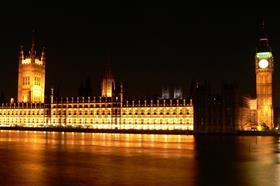Agenda 15 manifesto published after year-long consultation

Building has today launched its Agenda 15 manifesto for the next parliament, drawn up after a year of consultation with the industry.
The manifesto has been put together with the help of industry experts and a public consultation and aims to persuade the political parties to commit to policies in advance of this year’s general election that better support the industry as the economy recovers.
The manifesto calls for the setting up of an independent infrastructure body, along the lines of that suggested by the Labour Party-commissioned Armitt Review, and for an infrastructure minister overseeing implementation to sit in cabinet.
The full manifesto has a host of recommendations to aid the industry, including the creation of a national programme of retrofitting homes and the reinstatement of a national housing target with a genuine implementation plan to back it.
Continuing concerns over the shortage of skills in the industry are also identified by the manifesto as a key priority. It calls for any future government to complete its review of the Construction Industry Training Board, confirm the continuation of the industry levy to pay for training, and make a mandatory requirement for contractors to train staff on sizable public sector projects.
The manifesto’s recommendations can be distilled into eight key actions. These are:
- Create an independent infrastructure body, either by implementation of the Armitt Review, or by building on existing structures, to assess and enable prioritisation of the UK’s infrastructure needs
- Appoint a cabinet minister responsible for overseeing the creation and implementation of the resultant infrastructure plan
- Reinstate a realistic national housing target, and draw up a genuine implementation plan to meet it
- Set up a new national retrofit programme to improve the sustainability of homes and offices
- Give the independent infrastructure body the remit to oversee drawing up the retrofit programme, the housing target, and assessing “nationally significant” housing projects of above 5,000 homes – with the cabinet minister responsible for implementation of these objectives
- Back industry’s efforts to train up the next generation of construction workers by confirming support for the industry levy and making a mandatory requirement for training or apprentices on all public contracts over the OJEU threshold (currently £4.3m)
- Build on the progress achieved through publication of the government construction pipeline in providing greater workload certainty through expanded and ring-fenced government programmes of school building, social housing construction, maintenance of the health estate.
- Pursue a broad economic programme designed to create a thriving economy which benefits from greater regional and local devolution, and commit to making the case strongly for remaining within the EU in any forthcoming referendum on UK membership.
Building is calling for the industry to get behind its proposals, in order that they are given more weight when we take them to the political parties. To indicate your support, please sign up here on the website.
Building launched a public consultation to test what was important to the industry in January last year, and then in October consulted on a draft version of the manifesto. Building then consulted a panel of industry experts before finalising the document. This panel included Jack Pringle, former Riba president, Paul Morrell, former chief construction adviser, John Morgan, Morgan Sindall chief executive, Richard Threlfall, KPMG head of construction, Donald Lawson, Faithful & Gould chief executive, Richard Steer, Gleeds chairman, Noble Francis, CPA economics director, Simon Rawlinson, EC Harris partner, Rab Bennetts, Bennetts Associates director, Hanif Kara, AKTII co-founder, John Frankiewicz, Willmott Dixon capital works chief executive and Robin Nicholson, former Cabe commissioner. Their comments informed the final version.
To read the feature launching the manifesto, click here. For the full manifesto click here. For more on Agenda 15 click here.




























No comments yet